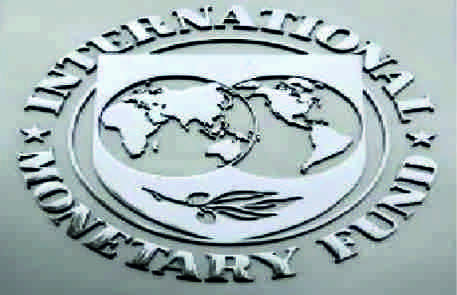The International Monetary Fund (IMF) projects slow but steady global economic growth for 2024 and 2025, with the United States leading the way despite various challenges.
The IMF forecasts a global real GDP growth of 3.2 percent for both years, consistent with the rate observed in 2023. The 2024 projection was revised slightly upward by 0.1 percentage point, primarily due to an improved outlook for the United States.
Pierre-Olivier Gourinchas, the IMF‘s chief economist, emphasized the resilience of the global economy amid ongoing challenges such as high inflation, weak demand in China and Europe, and the impact of regional conflicts.

PHOTO: REUTERS
The IMF highlights the potential consequences of a further escalation of conflicts in the Middle East, particularly after Iran’s recent attacks on Israel. Such escalations could lead to increased oil prices and inflation, prompting tighter monetary policies from central banks.
In response to the escalating tensions, the US Treasury is preparing to impose new sanctions on Iran, potentially affecting its ability to export oil.
The IMF also warns of adverse scenarios, including a 15 percent increase in oil prices and higher shipping costs, which could raise global inflation by approximately 0.7 percentage points.
Despite these challenges, the IMF anticipates a decline in global median headline inflation to 2.8 percent by the end of 2024, down from 4 percent in the previous year.
The forecast for US growth in 2024 has been revised upward to 2.7 percent, reflecting stronger-than-expected employment and consumer spending. However, the delayed effects of tighter monetary and fiscal policies are expected to moderate growth to 1.9 percent in 2025.
In contrast, Europe faces slower growth and faster-falling inflation, with downward revisions to growth forecasts for the eurozone and the United Kingdom.
China’s growth is forecasted to decline slightly, with ongoing concerns about the country’s troubled property sector and its impact on domestic demand.
Despite these challenges, some emerging market countries show resilience, with upward revisions to growth forecasts for Brazil and India. However, low-income developing countries continue to struggle with post-pandemic adjustments and economic “scarring.”
One of the notable surprises is the increase in Russia’s growth forecast, attributed to strong oil export revenues, government spending, and investment related to war production.
Overall, the IMF underscores the need for coordinated efforts to address global economic challenges and supports policies to promote sustainable growth and stability.











